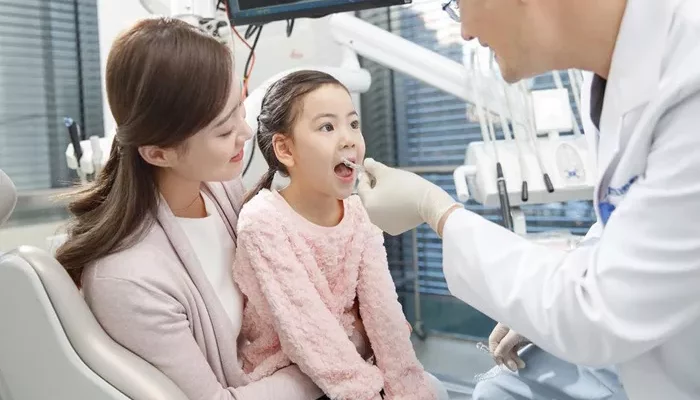Dental health is a crucial aspect of overall well-being for children. As they grow, children face various dental problems that can affect their oral health and development. At York Children’s Dentistry, we understand the unique challenges that parents and children encounter regarding dental care. This article will discuss five common dental problems in children and provide practical solutions to help you manage them effectively.
Understanding Children’s Dental Health
The Importance of Early Dental Care
Children’s dental health is vital for several reasons. Healthy teeth are essential for proper nutrition, speech development, and self-esteem. Early dental care helps prevent serious issues later in life. Regular check-ups and good oral hygiene habits can significantly reduce the risk of dental problems.
Common Dental Problems in Children
Children often experience specific dental issues due to their developing teeth and changing diets. Understanding these problems can help parents take proactive measures to ensure their child’s oral health.
Tooth Decay
What Is Tooth Decay?
Tooth decay, also known as dental caries, is one of the most common childhood dental problems. It occurs when bacteria in the mouth produce acids that erode tooth enamel, leading to cavities. Children are particularly susceptible to tooth decay due to their diets, which often include sugary snacks and drinks.
How to Deal with Tooth Decay
Maintain Good Oral Hygiene: Encourage your child to brush their teeth twice a day with fluoride toothpaste. Flossing should also be introduced as soon as two teeth touch.
Limit Sugary Foods: Reduce the intake of sugary snacks and beverages. Opt for healthier alternatives like fruits, vegetables, and whole grains.
Regular Dental Check-Ups: Schedule dental visits every six months for professional cleanings and check-ups. Early detection of cavities can prevent more extensive treatment.
Consider Sealants: Dental sealants can protect the chewing surfaces of back teeth from decay. Talk to your dentist about whether sealants are appropriate for your child.
Gum Disease
What Is Gum Disease?
Gum disease, or periodontal disease, is an infection of the tissues that support the teeth. It is less common in children than in adults, but it can still occur, especially if proper oral hygiene is not maintained. Symptoms may include swollen gums, bleeding during brushing, and bad breath.
How to Deal with Gum Disease
Teach Proper Brushing and Flossing: Ensure your child knows how to brush and floss correctly. Supervise their brushing until they can do it effectively on their own, usually around age 7 or 8.
Regular Dental Visits: Regular check-ups allow the dentist to monitor gum health and provide professional cleanings to remove plaque and tartar buildup.
Healthy Diet: A balanced diet rich in vitamins and minerals supports gum health. Encourage your child to eat plenty of fruits, vegetables, and dairy products.
Misaligned Teeth and Bite Issues
What Are Misaligned Teeth and Bite Issues?
Misaligned teeth and bite issues, such as overbites, underbites, and crossbites, are common in children. These problems can affect a child’s ability to chew properly and can lead to jaw pain and other complications if left untreated.
How to Deal with Misaligned Teeth
Early Evaluation: Schedule an orthodontic evaluation by age 7. Early assessments can identify potential issues and determine if early intervention is needed.
Braces and Appliances: If misalignment is detected, your dentist may recommend braces or other orthodontic appliances to correct the problem.
Encourage Good Habits: Teach your child to avoid habits that can worsen misalignment, such as thumb sucking or prolonged use of pacifiers.
Dental Injuries
What Are Dental Injuries?
Dental injuries, such as chipped, fractured, or knocked-out teeth, can occur during play or sports activities. These injuries can be distressing for both children and parents and require prompt attention.
How to Deal with Dental Injuries
Stay Calm: If your child experiences a dental injury, remain calm to help soothe their anxiety.
For Chipped or Fractured Teeth: Rinse the mouth gently with warm water and apply a cold compress to reduce swelling.
Contact your dentist for an evaluation.
For Knocked-Out Teeth: If a permanent tooth is knocked out, handle it by the crown (the chewing surface) and rinse it gently without scrubbing. If possible, reinsert the tooth into the socket. If not, place it in a glass of milk or a saline solution and seek dental care immediately.
Emergency Dental Care: Always have your dentist’s contact information readily available for emergencies. Prompt treatment can save a damaged tooth.
Bad Breath (Halitosis)
What Is Bad Breath?
Bad breath, or halitosis, is a common issue among children. It can result from poor oral hygiene, certain foods, or underlying health issues. While occasional bad breath is normal, persistent halitosis may indicate a more serious problem.
How to Deal with Bad Breath
Encourage Good Oral Hygiene: Ensure your child brushes their teeth twice a day and flosses daily. Don’t forget to brush the tongue, as bacteria can accumulate there.
Stay Hydrated: Encourage your child to drink plenty of water throughout the day. A dry mouth can contribute to bad breath.
Healthy Snacks: Offer crunchy fruits and vegetables, such as apples and carrots, which can help clean teeth naturally and freshen breath.
Regular Dental Check-Ups: If bad breath persists despite good oral hygiene, consult your dentist. They can help identify any underlying causes, such as gum disease or tooth decay.
Conclusion
Dental problems in children can be concerning for parents, but many issues can be prevented or effectively managed with proper care. At York Children’s Dentistry, we emphasize the importance of early intervention, good oral hygiene, and regular dental visits. By understanding common dental problems and knowing how to address them, you can help ensure your child’s smile remains healthy and bright.
Encourage your child to develop good oral hygiene habits, provide a balanced diet, and seek professional dental care when needed. With your support and guidance, your child can enjoy a lifetime of optimal oral health. Remember, prevention is key, and a proactive approach to dental care can make all the difference!
Related topics:

